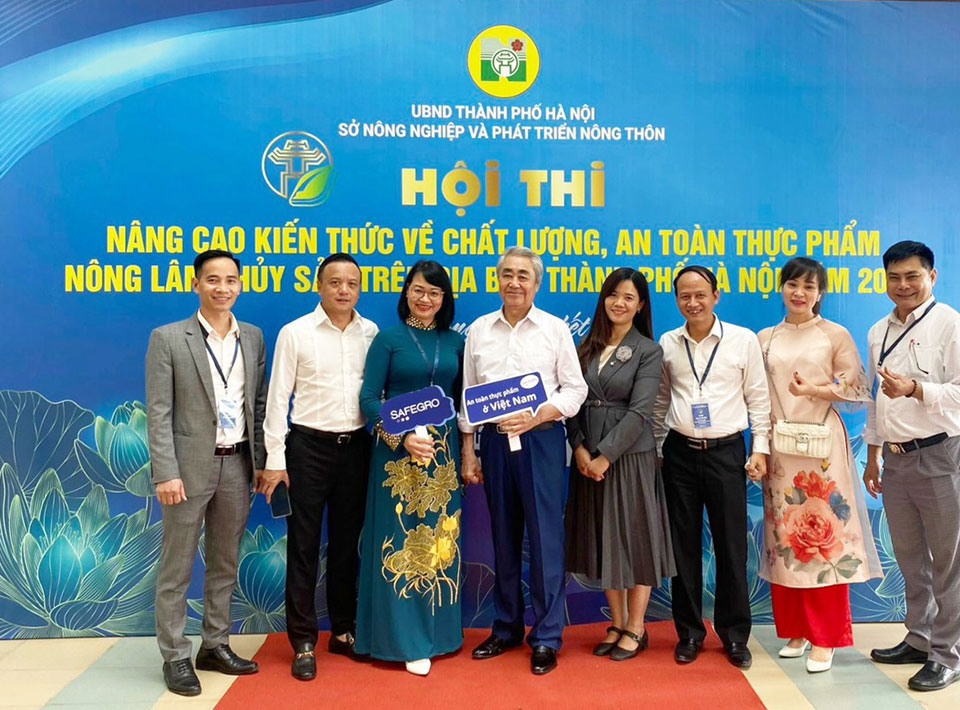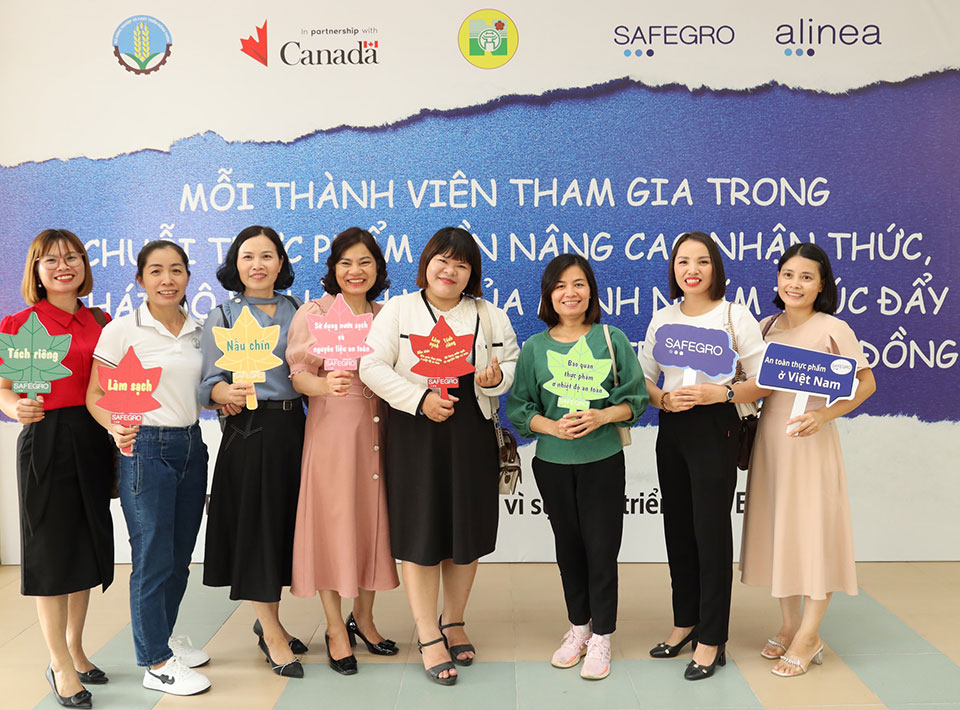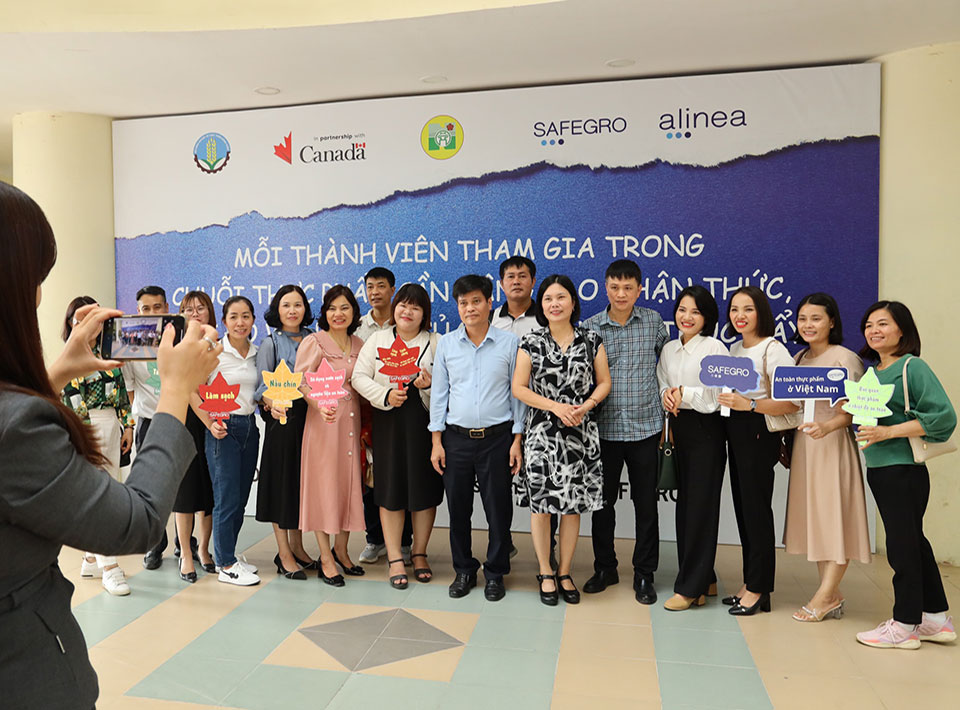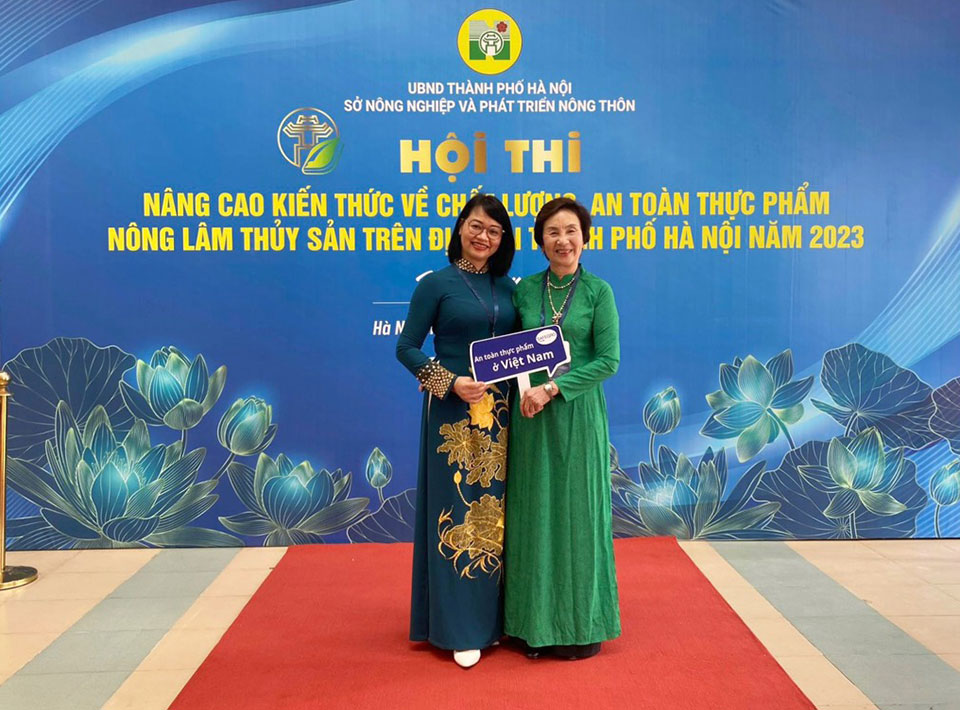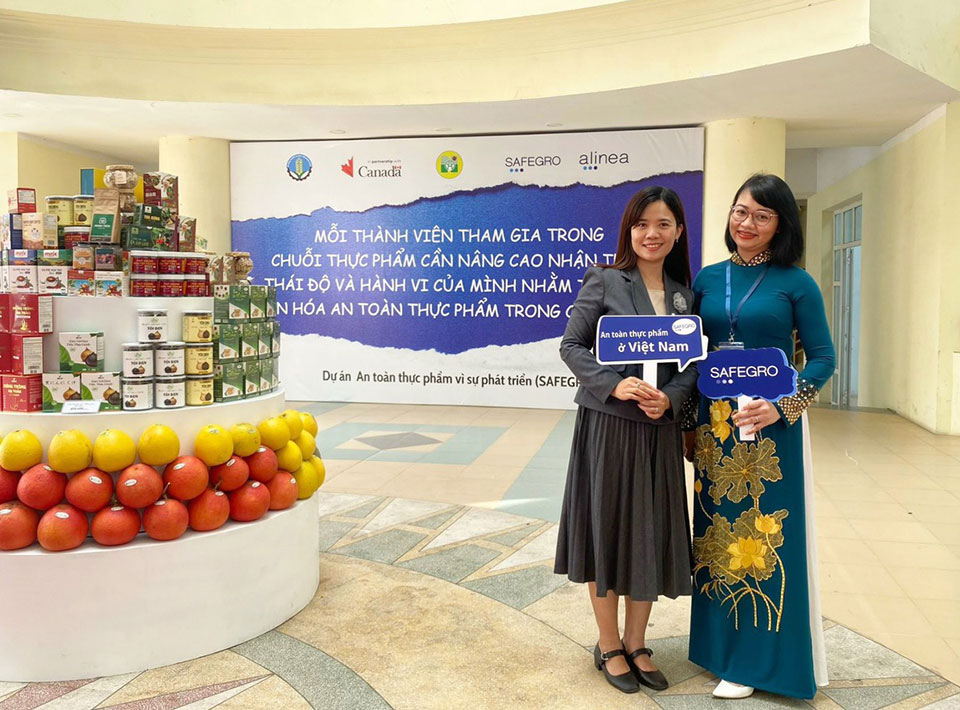Strengthening innovations for promoting knowledge about food safety, fostering opportunities for government officials and those directly involved in production and business to exchange experiences will ensure that quality management, a crucial activity, is directed toward ensuring sustainable health for people and their communities.
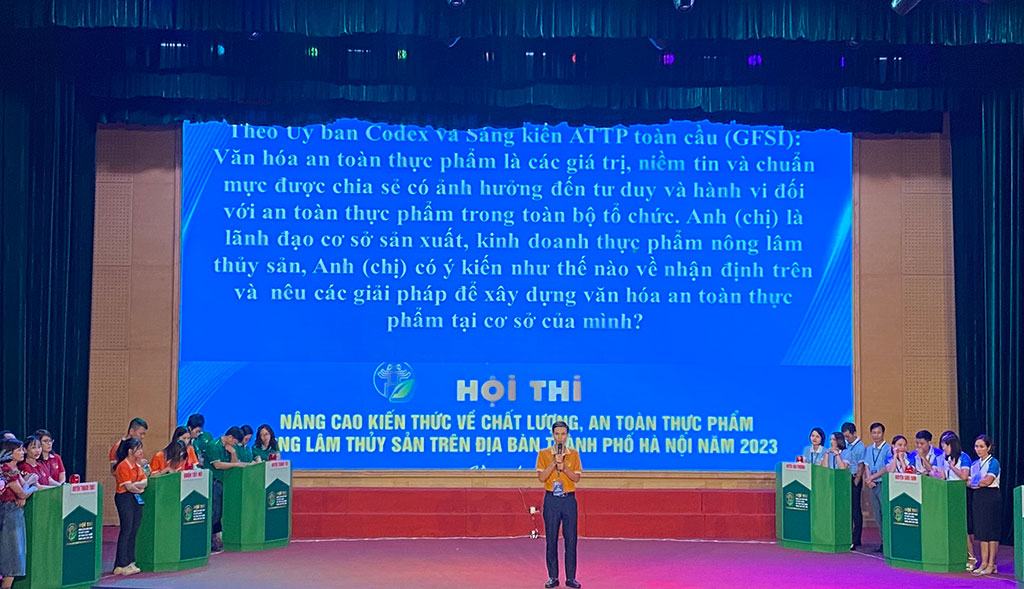
On December 14, the Hanoi Department of Agriculture and Rural Development organized the final round of the “Contest to improve knowledge on the quality and safety of agricultural, forestry, and fishery food” for districts and towns in Hanoi city. SAFEGRO provided technical support to the contest teams before the final round, including insights on food safety culture and gender sensitivity in communication, as well as advising on the preparation of situational questions and the suggestions on scripts for the skit in the talent contest.
Six finalist teams competed in knowledge questions, situational questions, and an aptitude test. The situational questions included food safety culture which SAFEGRO is actively promoting in Vietnam.
In the situational questions section, the Organizing Committee raised a question related to food safety culture—the topic that the SAFEGRO project is actively promoting in Vietnam. The question was ‘According to the Codex Commission and the Global Food Safety Initiative (GFSI), food safety culture is defined as the shared values, beliefs, and norms that influence thinking and behavior towards food safety throughout the entire organization. As the leader of an agricultural, forestry, and fishery food production and trading facility, what are your opinions on the above statement, and what solutions do you propose for building a food safety culture at your facility?’
Ha Dong team drew this question and had an excellent answer. The team believes that the comments of the Codex Committee and the Global Food Safety Initiative are accurate and, at the same time, offer solutions to build a food safety culture at the facility.
According to the Ha Dong team, Food safety culture standards and behaviors are developed for the entire organization, including each department and job position. The team also proposes a plan to manage and regularly evaluate the implementation of food safety culture, praising achievements, honoring successes, and suggesting measures to overcome problems and shortcomings.
SAFEGRO also contributed to the gender-sensitive aspect of the talent competition of the teams. Competition teams have paid more attention to adjusting gender balance in their skits.
SAFEGRO awarded each finalist team a training course on ‘Food safety culture and gender sensitivity in agricultural value chain management”.
Within the framework of the project, SAFEGRO will consistently collaborate with Hanoi to enhance the competitiveness of actors in the value chain, with a special focus on poor farmers and women. This aims to supply safe agricultural products to market while contributing to the growing consumer demand for safe, affordable agricultural food products in Vietnam.
SAFEGRO, funded by Canada, aims to ensure the long-term health of the Vietnamese people.

